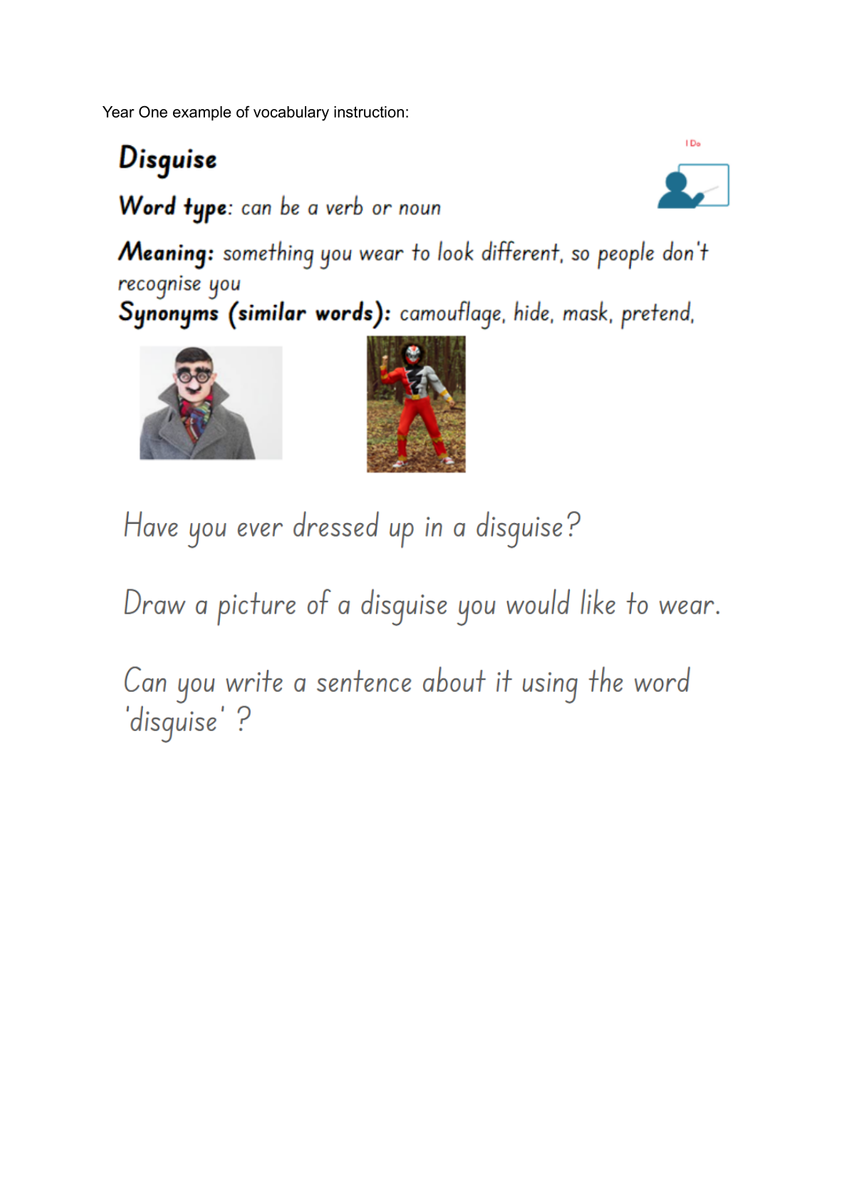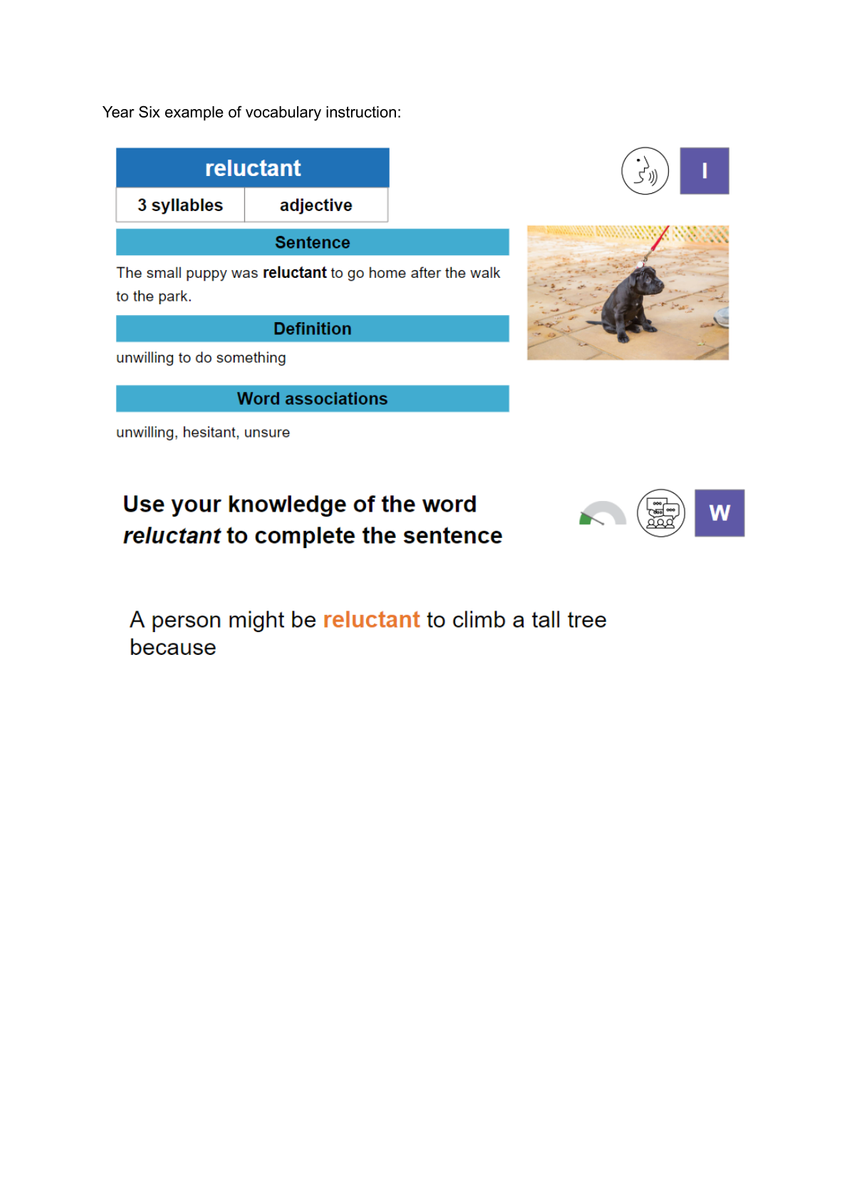Literacy News
Gen Murtagh

Literacy News
Gen Murtagh
In the last newsletter we looked at the Big Six of literacy. These six key components contribute to successful reading. They are:
To be effective readers children need to be able to use the six components in combination.
The focus in the last newsletter was fluency.
Today the focus is on vocabulary.
When children know the meaning of a word, they are far more likely to be able to read it and make sense of it within a text. Children need to be continually expanding the range of words that they can understand and use in context.
Vocabulary knowledge has repeatedly been shown to be linked with reading comprehension ability, multiple research studies recommend instruction that targets vocabulary as one of the keys to reading that will support children’s reading comprehension.
At CPS we use direct and rich vocabulary instruction in our literacy sessions.
Teachers do this with:
How can families help with vocabulary learning at home?
Parents and caregivers can best support their children in learning vocabulary by encouraging them to talk and listen for a range of different purposes, and reading aloud to them or sharing great literature with them often. Children learn new words by hearing them used meaningfully many times and by being encouraged to use new words in their own talk.
Other ways to support vocabulary learning include the following:
Become ‘word aware’ as you read aloud. One of the best places for children to hear new words used meaningfully is in great children’s literature. Comment on words you know are new to your child that they read in library books or hear in audio books. Question your child: What do they sound like, what could they mean, what do they remind you of?
Use a wide vocabulary when speaking to your child. Encourage children to ask the meanings of unfamiliar words and to use new words in their own spoken communication.



